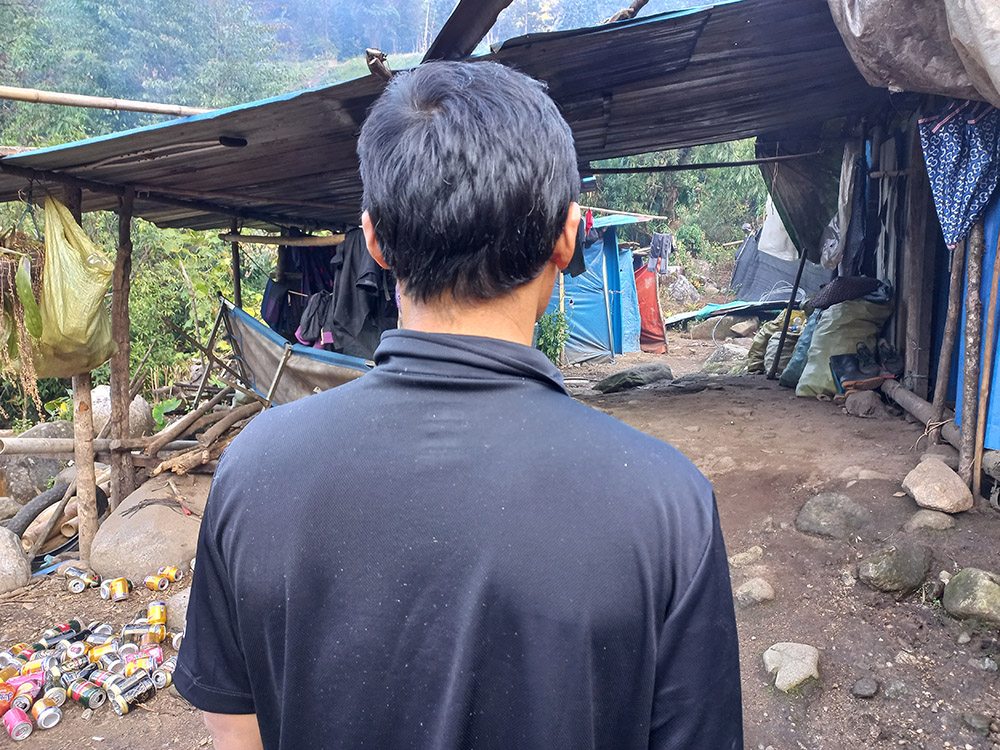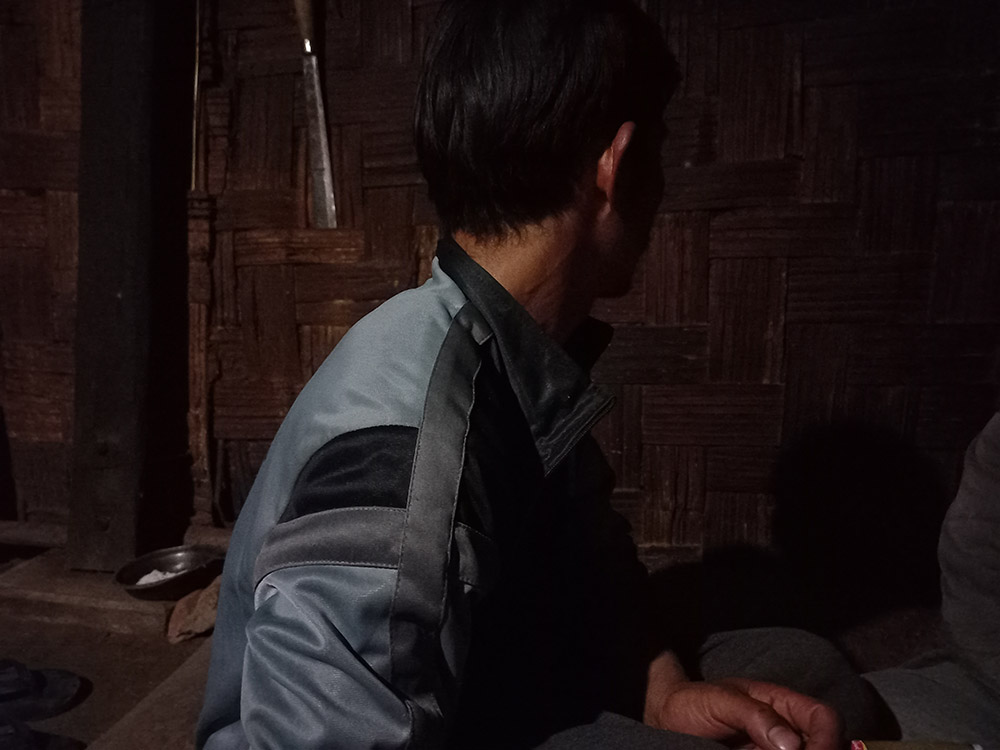Tang Gun and Tu Htang (pseudonyms), about eight to ten years younger than me, were from the same village in Kachin State, Myanmar. I remember them as vibrant, sociable and full of life. They were together at school and were in their late teenage years, or thereabouts, when I left the village to further my studies.
Later, I learned that they had been arrested and sentenced to lengthy prison terms in China for drug trafficking. Livelihood opportunities were scarce in that war-torn region of Kachin State. Young people, often poorly educated, turned to desperate means such as trafficking raw opium to China, hoping for quick money.
Tang Gun was arrested in December 2012 and freed in October 2024, after spending over 12 years behind bars. Tu Htang was arrested in October 2007 and freed in July 2024 , after over 17 years.
In January 2025, I met Tang Gun and Tu Htang again for the first time since they regained their freedom. The transformation was striking. They were reserved and quiet, displaying a noticeable loss of self-confidence. The weight of their prison experience was evident in their posture, speech and interactions—marked by caution, introspection and a reluctance to engage as freely as before.
This impression brought a familiar sense of sadness and shock in 2018 when I met Ngwa Lay (pseudonym), a neighbor of mine. Ngwa Lay was another former prisoner and had undergone a similar change. He spent nearly 10 years in a Chinese prison, also for drug trafficking.
Forced labor and exhaustion
Ngwa Lay, Tang Gun and Tu Htang all served their sentences at the First Yunnan Province Prison in Kunming. They revealed the harsh realities faced by Myanmar inmates in the Chinese prison. Throughout their prison lives, all of them were tasked with sewing clothes, ranging from army uniforms to world-renowned brands.
In the beginning, each inmate was given a daily quota, which, if completed on time, only increased the next day. There were no rewards for meeting these quotas, only exhaustion. Over time, inmates learned to finish their quotas just in time to avoid an increase, leading to a cycle of relentless labor.
The former inmates believe that once sentenced, their working hours were sold to businesspeople, making Chinese products globally competitive due to nearly free labor. Inmates received less than 1 percent of the value they produced, regardless of their performance.

Abuse of trust
Tang Gun and Tu Htang warned Myanmar people about the dangers of being lured into illegal activities by Chinese business partners in China. Tang Gun initially smuggled jade into China. After over a year of business dealings, a degree of mutual trust seemed to develop and Tang Gun would extend credit for jade sales.
Tang Gun and his associates occasionally relaxed together by smoking opium. One afternoon in October 2007, Tang Gun was arrested carrying about 100 grams of raw opium, about 100 meters from his hotel, as he was on his way to a venue for a pre-planned party with his business partners. He quickly realized he had been set up by one of them, possibly to evade payment.
Feeling forgotten
Tang Gun and Tu Htang both acknowledge that they violated Chinese law and accept the consequences. They never expected Myanmar authorities to intervene, rescue them from a Chinese prison, or even appeal for leniency. But they had hoped for a minimum of care from their government authorities, such as annual prison visit — just a small gesture of support and encouragement. The authorities they refer to include the Myanmar government and local entities such as the Kachin Independence Organization (KIO).
However, Myanmar inmates were abandoned, unlike those from other countries like Thailand, whose government officials visited them regularly. In the more than a decade they spent in the Chinese prison, neither the Myanmar government’s embassy nor local de facto authorities like the KIO sent officials to check on them. The inmates felt utterly abandoned and forgotten by their own country.
All Myanmar citizens, regardless of their circumstances, have the right to assistance and protection from their government. The Myanmar government has a moral and legal responsibility to assist its citizens—even to those who break laws—to ensure they receive due legal process. Article (380) of the 2008 Constitution stipulates: “Every citizen who has relations with foreign countries shall have the right to seek protection of the Union at home or abroad.”
Tang Gun and Tu Htang believe Myanmar authorities’ seemingly total neglect of their own people has significantly contributed to the exploitation and discrimination of Myanmar people by foreign governments and employers abroad.
Constant surveillance, mental torture
Ngwa Lay, Tang Gun and Tu Htang all served their sentences at the First Yunnan Provincial Prison. Tang Gun and Tu Htang said that there are around 5,000 people in this prison—over 4,000 of them from Myanmar. Each cell houses eight to 12 people.
Inmates are watched 24/7 through CCTVs. Despite the presence of prison guards outside the cells in addition to the CCTVs, the inmates are ordered to take turns as night guards inside the cell, with each shift lasting one hour. Tang Gun and Tu Htang argued that the night watch scheme serves no purpose other than psychological torture through sleep deprivation. “No one can escape, the only thing this does is to break us mentally,” said Tang Gun.

Discrimination
Tang Gun and Tu Htang recalled that at the First Yunnan Provincial Prison, Myanmar nationals faced the harshest treatment. Through conversations with other inmates transferred from different blocks, Tang Gun and Tu Htang discovered that there were no “night guard” rotation schemes in place in any blocks except those housing Myanmar nationals.
Medical assistance was only granted when an inmate was so sick they could no longer eat. Communication with family was heavily restricted—only one call per month for those with a Chinese contact or Chinese phone number. International calls including those to Myanmar are allowed only once every six months. Even then, the calls are limited to just a couple of minutes, with the countdown starting from the moment the inmate walks toward the phone booth. Any call in a language other than Chinese is cut off immediately and results in punishments like increased work quotas, exhausting physical penalties, or the loss of precious sentence-reduction points.
Plea for action
China frequently emphasizes its “pauk-phaw” (fraternal) relationship with Myanmar, claiming to be a good neighbor and responsible regional leader. If China wants to live up to this claim, it should demonstrate fairness by treating Myanmar inmates humanely and offering sentence reductions.
Myanmar has repeatedly demonstrated goodwill toward China by releasing Chinese citizens who have committed serious crimes in Myanmar. For instance in 2015, Myanmar duly trialed and sentenced 153 Chinese nationals to life in prison for massive illegal logging. But within a week, the Myanmar government gave amnesty to all of the Chinese illegal loggers on humanitarian grounds. Moreover, Myanmar authorities have recently been simply handing over tens of thousands of Chinese citizens who clearly broke Myanmar laws (i.e., illegally entry and engagement in online scam operations) without any trial in Myanmar.
China has yet to demonstrate reciprocity toward Myanmar citizens in its prisons. As mentioned earlier, thousands of Myanmar nationals are detained in Chinese prisons, being exploited as free laborers. Regardless of their crimes, if Myanmar can grant amnesty to Chinese citizens sentenced to life in prison, why can’t China extend the same gesture to Myanmar inmates?
This issue demands urgent attention from Myanmar’s authorities—both those in power and those who aspire to be in power. Myanmar authorities must engage with China to ensure that their citizens are not exploited, neglected, and forgotten. These inmates are not just prisoners, they are human beings, and their suffering should no longer remain invisible.
Based on what we have seen in the wake of the crackdown on online scam operations in Myanmar, foreign governments seem protective of their citizens in any situation, much like parents who unconditionally safeguard their children. Why can’t Myanmar authorities adopt a similarly unwavering approach to safeguarding their own people?
Zung Ring is a social worker and independent political analyst based in Myanmar.
















